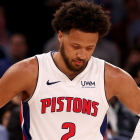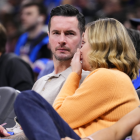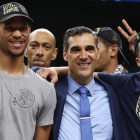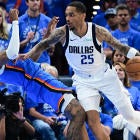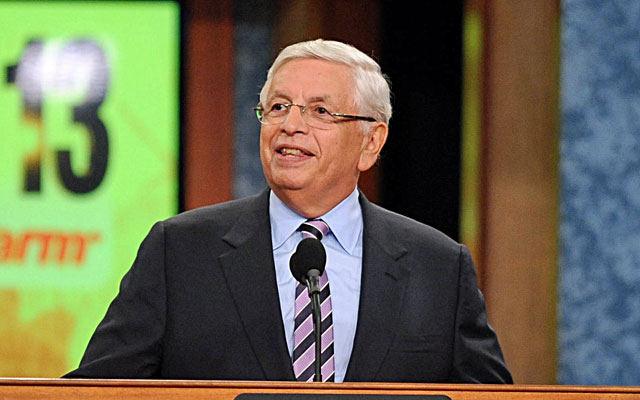
With NBA training camps set to open at the end of the week, an important order of business remains unresolved: an agreement between the league and the players' association on a testing policy for human growth hormone.
As for outgoing commissioner David Stern's hope that a plan will be in place in time for the tipoff of the 2013-14 season, prepare to be disappointed.
Officials from the league office and National Basketball Players Association met earlier this month in New York to continue discussions on the matter, but a person familiar with the talks told CBSSports.com, "Nothing is anywhere near being agreed to." The negotiations are ongoing, but the gap may be too wide to close in time for a policy to be in place in time for the start of the regular season.
The impasse is hardly surprising, considering that the NFL has yet to move forward with an HGH testing plan that the league tentatively agreed to with the union in August. Implementation of the NFL's policy is in a holding pattern due to disagreements between the two sides on issues such as disciplinary procedures.
As part of that tentative agreement, NFL players were supposed to have submitted to blood collection during training camp for the purposes of establishing baseline levels of HGH to be used in determining levels for positive tests. Due to the ongoing dispute between the NFL and NFLPA over who will have final authority for HGH cases that go to arbitration, those blood samples were never taken.
Major League Baseball implemented an aggressive testing program for HGH this season and in August suspended 13 players, including the Yankees' Alex Rodriguez. All of the players received 50-game suspensions except Rodriguez, who was banned for 211 games. Rodriguez was the only player to appeal.
As part of the 2011 collective bargaining agreement, the NBA and NBPA appointed a panel of experts to study the issue of HGH testing and report its findings. A person with knowledge of the study told CBSSports.com that the panel's work is continuing. Among the matters at issue is the proper establishment of baseline levels, the reliability of blood screening for HGH and disciplinary procedures, league sources said.
The issue of biological passports -- the monitoring of biochemical markers in athletes to detect doping without positives tests for banned substances -- has taken a back seat in the NBA's talks over expanding its anti-drug agreement. The biological passport technique has yet to emerge as a significant aspect of negotiations between the league and union, sources said.
The NBA has maintained an anti-drug program since 1983 and currently has a list of approximately 160 banned substances ranging from recreational to performance-enhancing drugs. Players are subject to six random urine tests a year -- four to be conducted during the regular season and two during the offseason. The league does not screen for HGH, which must be analyzed from blood samples.
In July, Stern said he was hopeful that an HGH testing policy could be adopted in time for the start of the 2013-14 season. Afterward, the NBPA's interim executive director, Ron Klempner, told CBSSports.com that the absence of a permanent replacement for ousted former executive director Billy Hunter was not impeding progress in HGH talks with the league.
The union has since elected a new president, Chris Paul, who is leading the executive committee and union legal staff in the search for Hunter's permanent replacement.













